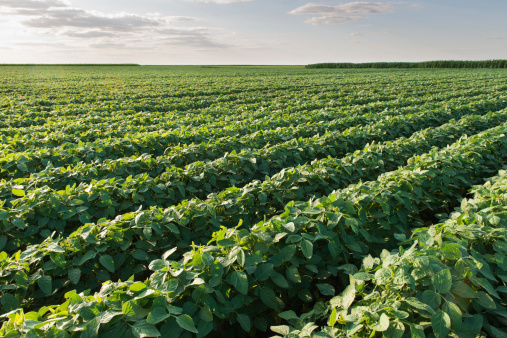Commodities & Metals
Should Syngenta Take the Offer From Monsanto?
Published:
Last Updated:

Maybe, but over the past three years Syngenta’s stock price has risen about 11% while Monsanto’s has jumped up nearly 62%. Over the past two years, Monsanto’s stock has gained 10% while Syngenta’s has dropped more than 7%, and over the past 12 months, through Thursday’s close, Monsanto’s shares are up a little more than 6% while Syngenta’s are down about 0.5%.
There are a couple of things worth mentioning here. First, Monsanto’s growth rate has slowed dramatically over the past three years and the company has to figure out a way to turn that around. Going after another large agribusiness company makes a lot of sense.
Then there is Syngenta’s location in Switzerland, a wonderful place from which to avoid U.S. corporate taxes.
ALSO READ: Companies With the Best (and Worst) Reputations
Second, Syngenta might think its stock is undervalued, but investors seem to believe otherwise, and they get to cast the deciding vote. Maybe Monsanto is trying to pick up its large competitor for a lower price, but even with the Monsanto bid in its pocket, the stock only managed to reach about 412 Swiss francs on the VTX. That would indicate that a bidding war is not a likely outcome in shareholders’ minds.
Monsanto’s offered buyout price of around $45 billion would create a seed and pesticide maker with a market cap north of $80 billion, bigger than DuPont or Dow Chemical and in the same ballpark with BASF, but still well below Bayer. These are the world’s six largest seed companies, with Monsanto ranked first and Syngenta third. The big six would become the big five and the Monsanto-Syngenta company would be no worse than third in the ranking and eventually may displace BASF in second place.
Syngenta also said in its press statement Friday morning that Monsanto’s offer “underestimates the significant execution risks, including regulatory and public scrutiny at multiple levels in many countries.” This is where the offer gets interesting.
Monsanto has long been considered to be among the most politically connected U.S. firms, at least in the United States. At the top of its list of connections is Supreme Court Justice Clarence Thomas, a former company attorney at Monsanto, and Islam Siddiqui, a former lobbyist for CropLife America, which represented biotech companies including Monsanto and who was appointed by President Obama as the chief agriculture negotiator for the office of the U.S. Trade Representative. He has served in that role until December of 2013. There are other former and current government officials with ties of one kind or another to Monsanto.
In other words, Monsanto has friends in high places, at least in the United States, and the company has managed successfully to deflect criticism of both its glyphosate products sold under the trade name Roundup and its genetically modified seeds, the patents on which it defends with single-minded zeal. Because both Syngenta and Monsanto are international companies, the combination ought to have a significant amount of political clout in every country where it does business.
ALSO READ: 15 Companies Losing the Most Money
The Swiss company’s closing price Monday was $71.96, and shares closed at $77.00 on Thursday. Shares traded another 9.6% higher in the early afternoon on Friday to $84.38, after posting a new 52-week high of $87.54 early in the morning. The 52-week low is $58.72.
Monsanto traded 2.5% higher Friday, at $122.17 in a 52-week range of $105.76 to $128.79.
If you’re like many Americans and keep your money ‘safe’ in a checking or savings account, think again. The average yield on a savings account is a paltry .4% today, and inflation is much higher. Checking accounts are even worse.
Every day you don’t move to a high-yield savings account that beats inflation, you lose more and more value.
But there is good news. To win qualified customers, some accounts are paying 9-10x this national average. That’s an incredible way to keep your money safe, and get paid at the same time. Our top pick for high yield savings accounts includes other one time cash bonuses, and is FDIC insured.
Click here to see how much more you could be earning on your savings today. It takes just a few minutes and your money could be working for you.
Thank you for reading! Have some feedback for us?
Contact the 24/7 Wall St. editorial team.